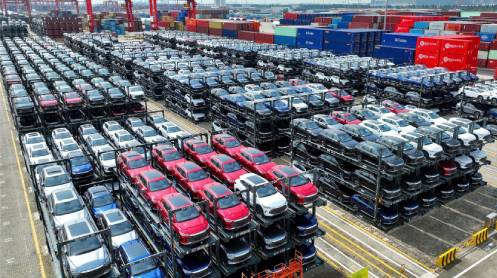Karachi – In a groundbreaking webinar titled “Bridging the Gap: How COP29 and the Education Sector Can Drive Inclusive Climate Leadership,” the Pakistan Alliance for Girls Education (PAGE), in partnership with the Federation of Pakistan Chambers of Commerce and Industry (FPCCI) central standing committee on Sustainable Development Goals (SDGs), highlighted the need for gender-responsive leadership to combat climate change. Held alongside the ongoing COP29 summit in Baku, Azerbaijan, the event underscored the crucial role of inclusive education and gender equity in effective climate action.
Fajer Rabia Pasha, Executive Director of PAGE, opened the webinar, stressing the pressing need for inclusive climate leadership. Pasha presented statistics that indicate women make up only 20% of global climate negotiation leaders, despite an increase to 39% of female participation at COP29. She emphasized PAGE’s mission to address gender disparities and promote gender-responsive education as a transformative approach for climate action.
Halima Khan, Head of Corporate Affairs and Sustainability at NFEH and Deputy Convener of FPCCI’s standing committee, lauded Pakistan’s gender-responsive approach, highlighting women’s growing leadership within the Ministry of Climate Change as a sign of progress. Ayesha Khan, Chairperson of SASCA and CEO of Danai AgriVenture, emphasized the need to integrate economic perspectives into climate policies, advocating for initiatives like “Green Schools” and “Green Movements” to connect sustainable development with climate resilience.
Discussions centered on the critical need for climate literacy among Pakistan’s youth, as they are poised to become future leaders. Ayesha Khan emphasized the integration of climate action into educational frameworks, citing a UNICEF report that found 78% of Pakistani students have been affected by climate-induced educational disruptions.
Maria Qadri, Director of Marketing & Communications at NUST, called for embedding climate action into academic curricula to prepare students, particularly young women, for leadership in sustainable initiatives. The importance of bridging climate justice and gender equity was echoed by Amnah Batool, MNA and Focal Person for the Prime Minister’s Youth Program, who highlighted that climate change disproportionately impacts women and marginalized communities and called for intersectional policies addressing these issues.
Insights from Javed Malik, Team Lead Goal Service Delivery at the British Council, underscored the integration of climate literacy into education. He pointed to the 97 school days lost to climate disruptions in Pakistan between January 2022 and June 2024 as an alarming call to action.
The event also explored the role of higher education and technology in climate solutions. Qadri advocated for a collaborative “Penta helix model,” integrating government, academia, private sector, civil society, and communities to comprehensively address climate challenges, supported by the Asian Development Bank’s recommendations on climate-resilient education.
In the Q&A session, participants discussed the importance of youth engagement and innovative agricultural technologies for resilience in Pakistan’s agricultural sector. In closing, PAGE outlined key policy recommendations: embedding climate literacy in education, promoting gender-responsive education, fostering research, and supporting inclusive leadership. Pasha urged for a unified commitment to reaching 50% female representation in climate leadership by COP30.
This dialogue, as COP29 continues, marks a vital call to action for gender equality, inclusivity, and educational reform, aimed at cultivating a resilient and inclusive future in the face of climate change.







